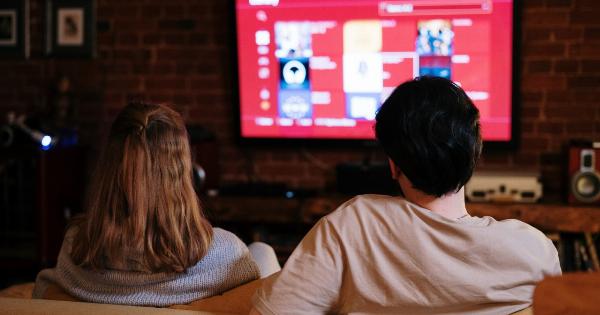In recent years, binge-watching has become a prevalent and sometimes uncontrollable habit for many individuals.
With the rise of streaming platforms and the easy accessibility of numerous TV series and movies, it has become increasingly difficult for people to resist the temptation of spending hours on end in front of screens. The allure of binge-watching lies in the ability to consume multiple episodes or even entire seasons of a show in one sitting, leading to a loss of control and addiction-like behavior.
In this article, we will explore the reasons behind uncontrolled binge-watching and delve into the psychological and social factors that contribute to this addictive behavior.
The Appeal of Binge-Watching
Binge-watching offers a sense of instant gratification and escapism. With just a few clicks, viewers can immerse themselves in a captivating storyline, forgetting their daily worries and responsibilities.
The convenience and accessibility of streaming platforms have made it easier than ever to indulge in continuous viewing experiences. Additionally, the anticipation of what will happen next and the desire to uncover plot twists contribute to the addictive nature of binge-watching.
The Psychology Behind Binge-Watching Addiction
Binge-watching can trigger a release of dopamine in the brain, similar to other addictive behaviors. Dopamine is a neurotransmitter associated with pleasure and reward, and the surge of this chemical during binge-watching can create a sense of euphoria.
This pleasure-seeking cycle reinforces the behavior and encourages individuals to continue binge-watching.
Furthermore, binge-watching often involves engaging with emotionally charged content. Whether through intense dramas, comedic relief, or thrilling action sequences, these shows have the power to elicit strong emotional responses.
This emotional connection can be addictive as viewers seek to replicate the feelings they experience while watching.
Social Factors Influencing Binge-Watching
The social aspect of binge-watching adds another layer to its appeal. It has become a cultural phenomenon, with binge-watching becoming a topic of conversation and bonding among friends, family, and co-workers.
The ability to discuss and share opinions about specific shows or episodes can strengthen social connections and lead people to continue binge-watching in order to participate in these discussions.
Moreover, social media platforms have amplified the communal experience of binge-watching. The ability to live-tweet or discuss episodes in real-time with a global audience creates a sense of shared excitement and belonging.
The fear of missing out on these conversations can drive individuals to engage in uncontrolled binge-watching in order to stay connected with others.
The Impact on Health and Well-being
While binge-watching may seem harmless, it can have negative effects on one’s health and well-being.
Sitting for long periods of time can contribute to a sedentary lifestyle, increasing the risk of obesity, heart disease, and other health problems. Additionally, excessive screen time can disrupt sleep patterns, leading to fatigue and daytime drowsiness.
Mental health can also be impacted by uncontrolled binge-watching. Engaging in excessive screen time can lead to a decrease in social interactions and participation in meaningful activities.
This isolation can contribute to feelings of loneliness and depression.
Breaking the Cycle
If you find yourself caught in the grips of uncontrolled binge-watching, there are strategies you can employ to break the cycle. Consider implementing the following:.
1. Set limits: Establish boundaries for your binge-watching habits. Allocate specific days or time slots for indulging in your favorite shows.
2. Engage in alternative activities: Find hobbies or activities that can replace binge-watching. Explore new interests such as reading, exercising, or spending time outdoors.
3. Practice mindfulness: Be aware of your binge-watching habits and the reasons behind them. Mindfulness can help you regain control and make conscious choices about your screen time.
4. Seek social support: Share your struggle with trusted friends or family members. They can offer encouragement and hold you accountable for your binge-watching habits.
Conclusion
Binge-watching addiction is a modern-day phenomenon that many individuals grapple with. The instant gratification, escapism, and social aspects associated with binge-watching contribute to its addictive nature.
However, it is crucial to be mindful of the impact excessive screen time can have on our health and well-being. By setting limits, engaging in alternative activities, practicing mindfulness, and seeking social support, it is possible to regain control and break free from the cycle of uncontrolled binge-watching.





























